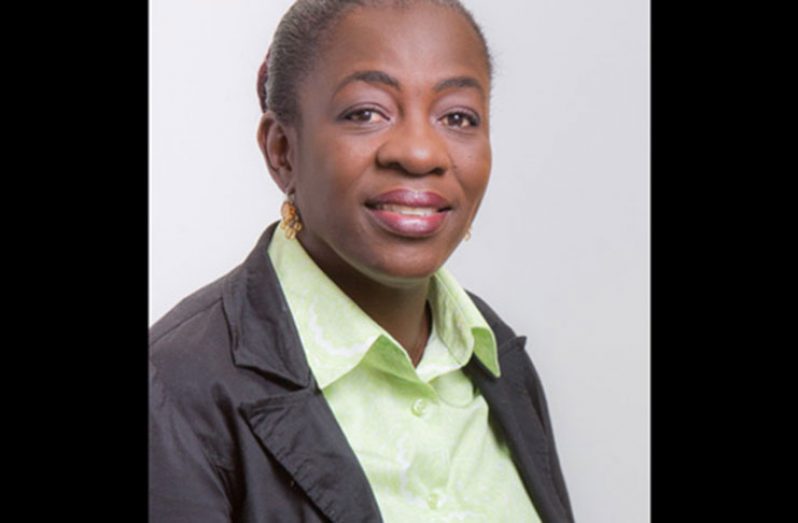— Education Minister Nicolette Henry
EDUCATION Minister Nicolette Henry has said any cap on subjects written at the Caribbean Secondary Education Certificate (CSEC) must be subject to wide consultation and due diligence.
“The ministry will engage the public to inform its decision at policy level. They will have to use the data we are generating, not only from public consultations but also from the school system,” she told the Guyana Chronicle.
She noted that the ministry is mandated to ensure students matriculated in the education system are comparable to other citizens in the region, and this bears with it myriad responsibilities.
Chairman of the Commission of Inquiry (CoI) into the education sector and former Chief Educational Officer (CEO), Ed Caesar, had earlier told the Guyana Chronicle that any cap on subjects students are allowed to sit at CSEC must be guided by research.
Henry pointed out that the proposed policy decision that speaks to capping, also spoke of circumstances regarding students with exceptional ability.
“While you have general rules which apply to everything we do in life, there are always exceptions and so we make provision for those exceptions but that cannot be the norm,” she said.
However, the Education Ministry’s circular on the subject did not speak to exceptional students.
Rather, it stated that out of the maximum of 10 subjects, students’ performance at the National Grade Nine Assessment and/or the Annual Grade 10 examinations would determine how many of the 10 subjects they are allowed to write.
Weighing in on the debate, Mohalani Chatterdeo (now Chatterdeo-Persaud), the first Guyanese to cop the Regional Top Performer Award at the Caribbean Examination Council (CXC) contended that the proposed policy is ill-informed.
Chatterdeo-Persaud, a former Queen’s College student, topped the Caribbean in 1997, some 20 years ago when she secured nine grade ones and one grade two at CSEC.
In fact, during her time, she was only supposed to write eight subjects, but defied the limit set and wrote 10.
SCHOLARSHIPS
Speaking at Queen’s College graduation last Thursday, held on June 29, the former top student said there are many reasons students would choose to sit many subjects, pointing out that chief among them is the availability or lack thereof of scholarships.
She stressed that there should be no cap on CSEC subjects, students should write unless CXC makes such a decision and suggested that a system monitoring how students cope psychologically with many subjects would help with the regulation.
“Those who have been allowed to do it [write more than 10 CSEC subjects], I urge you to let your voices be heard because the future of our country depends on people like you who can speak up,” she said, adding: “Whatever works for you, let it continue to work for you.”
Queen’s College head teacher, Jackie Benn-Ralph told the Guyana Chronicle the country’s premier secondary school is opposed to the proposed policy.
“I must inform you that Queen’s College, as the top secondary school in Guyana and the Caribbean, should be given an opportunity to have its students write the number of subjects they are capable of writing,” she underscored.
She related that the culture of Queen’s College, like other secondary schools, is one where focus is given to both academics and extra-curricular activities.
Buttressing her position, Benn-Ralph said students have represented the school and the country overseas in extra-curricular activities, from the Barbados Relay Fair (athletics) to cricket as well as science fairs.
At the next headteachers’ meeting, the school will be presenting its arguments and justifications why the proposed policy is ill-informed.
“We will be able to bring our arguments and together with other secondary schools, we will ensure that our students have access to what they deserve,” the Queen’s College head said.
Some have deemed the proposed policy controversial and Minister Henry said the views of the public cannot be ignored.
“We certainly welcome suggestions and inputs from the public to refine and continue improving on what we do but more importantly as a Ministry, we want to be able to ensure that the service we provide to our students is resulting in the greater benefit and good for the majority,” she told this publication.



.jpg)










